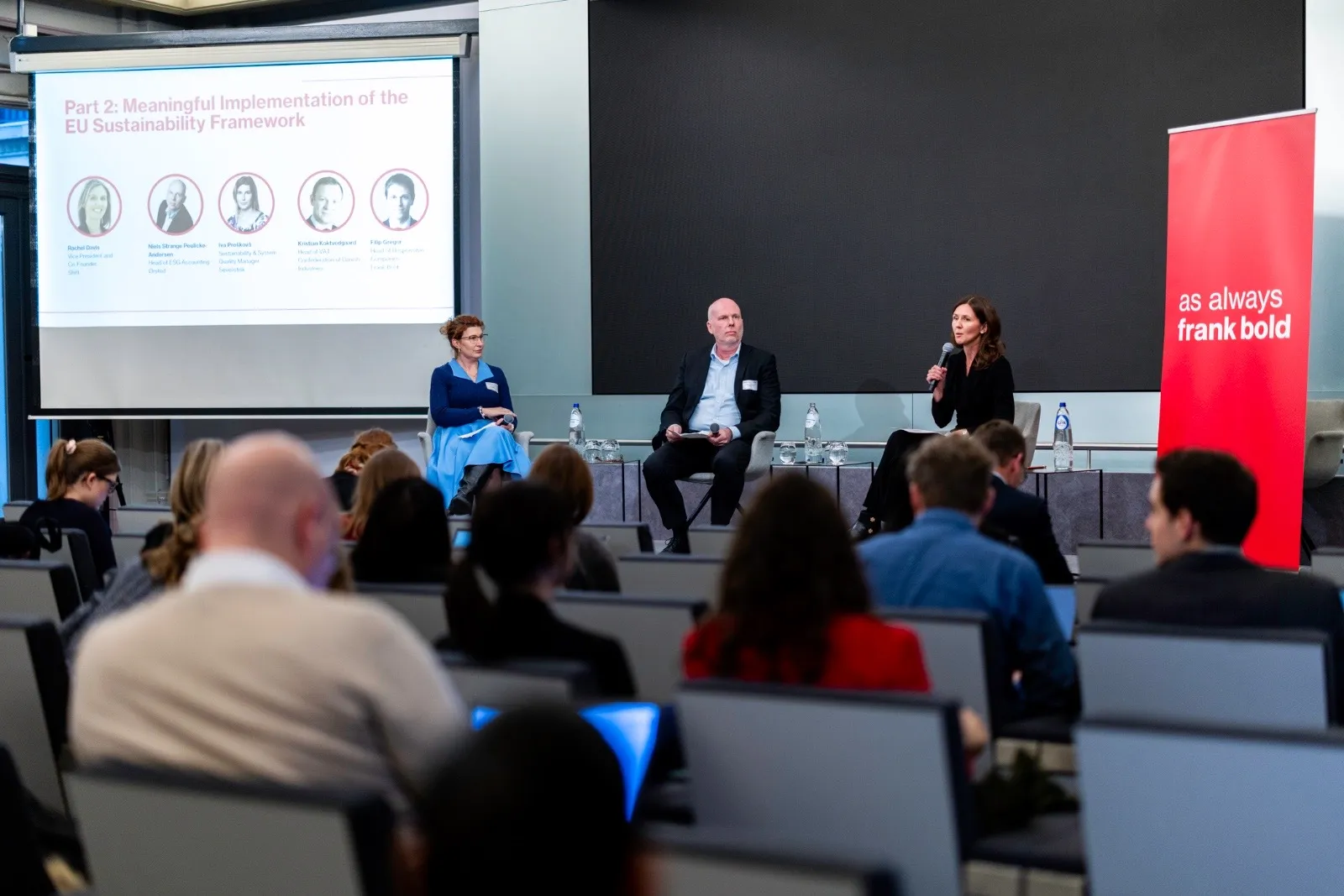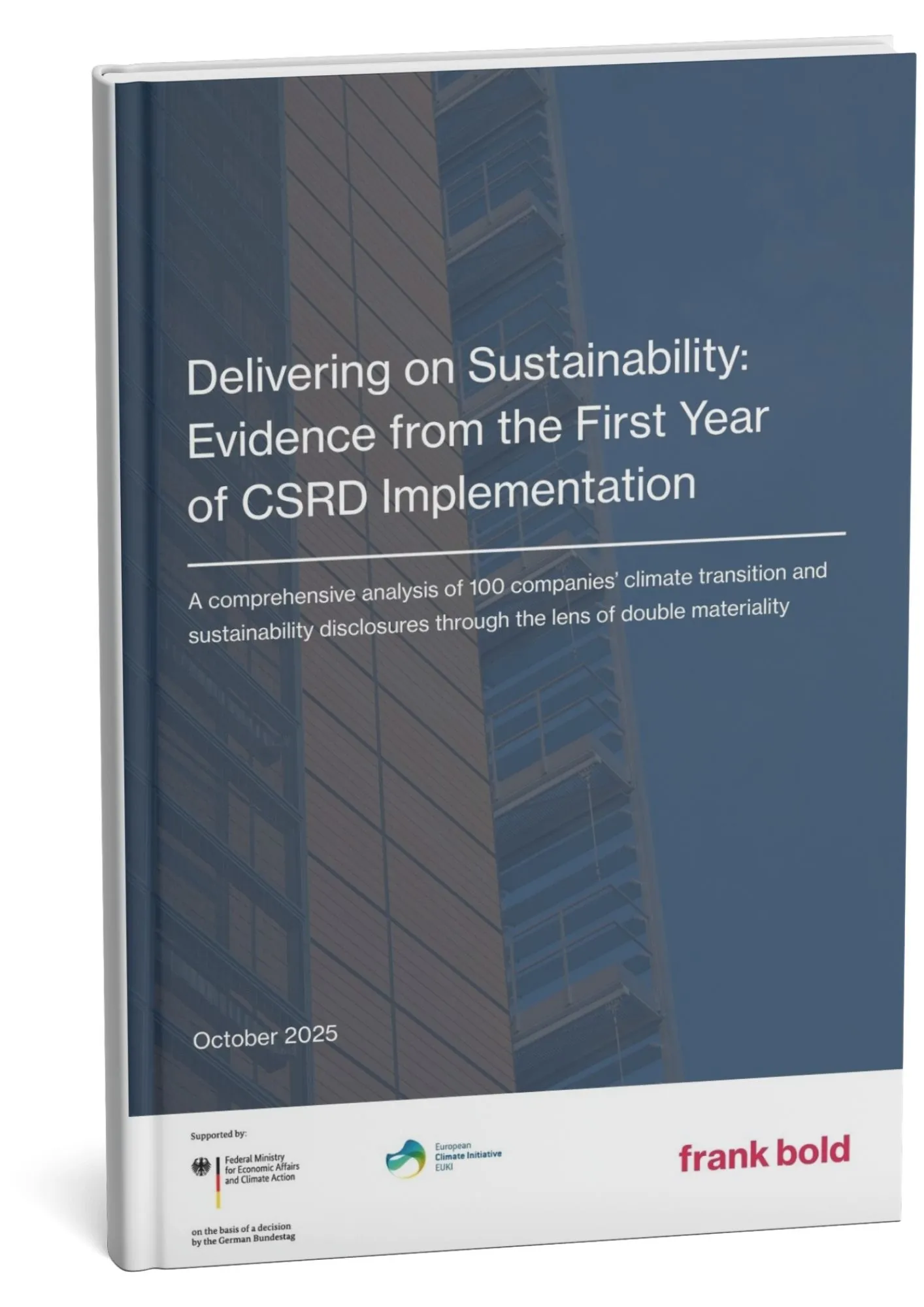MEP Lara Wolters in her powerful opening remarks stressed that in the face of these geopolitical challenges, European leaders must focus on delivering prosperity while avoiding a race to the bottom in social and environmental standards. The CSRD and CSDDD are important tools to ensure the competitiveness and sustainability of businesses.

For businesses to harness the sustainability advantage, they need a legal framework and standards for sustainability reporting, legal certainty, clear guidance and less emphasis on compliance.

Discover how European companies are managing ESG reporting. The new study by Frank Bold’s Responsible Companies team summarizes the first wave of sustainability reports from one hundred major European companies and shows that reporting under the CSRD provides valuable data for decision-making and is becoming an effective tool for risk management. Publication is part of the European Climate Initiative (EUKI) of the German Federal Ministry for Economic Affairs and Climate Action (BMWK).

Comprehensive Sustainability Report aligned with CSRD.
.webp)
A simplified ESG report for your business partners.

Mapped according to GHG Protocol Product Standard.

We are part of the Frank Bold Expert Group
Copyright ©
Aktuální rok script
Frank Bold